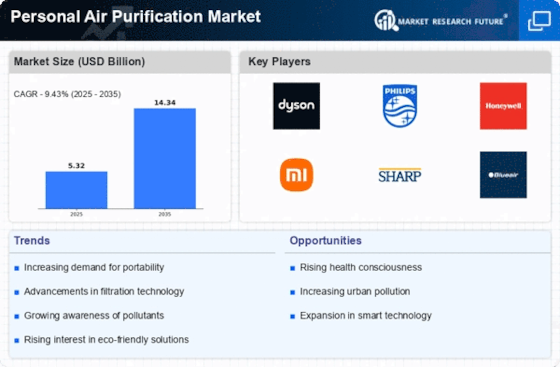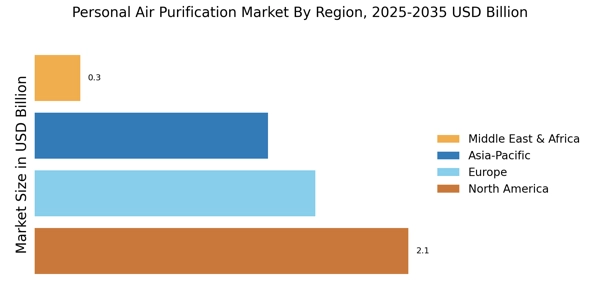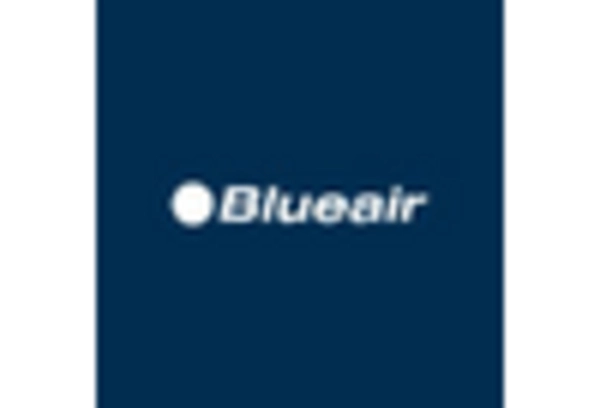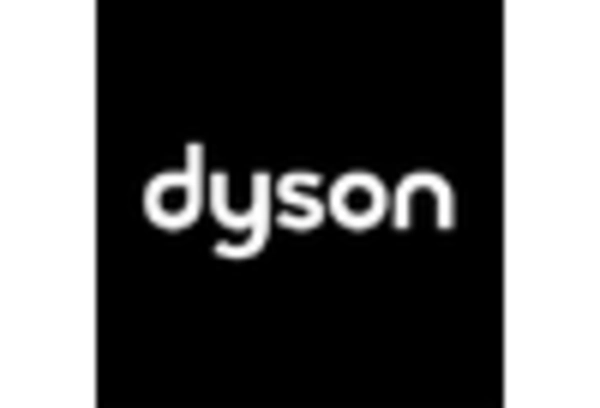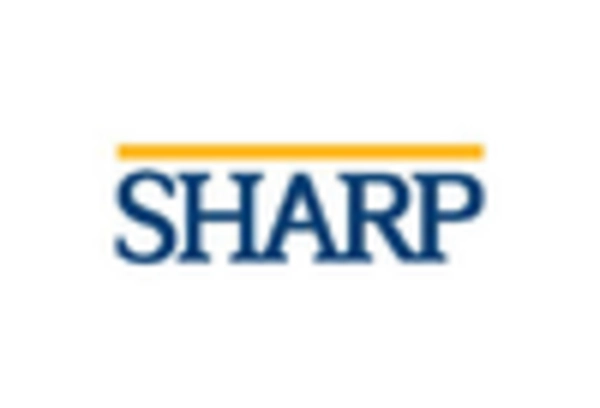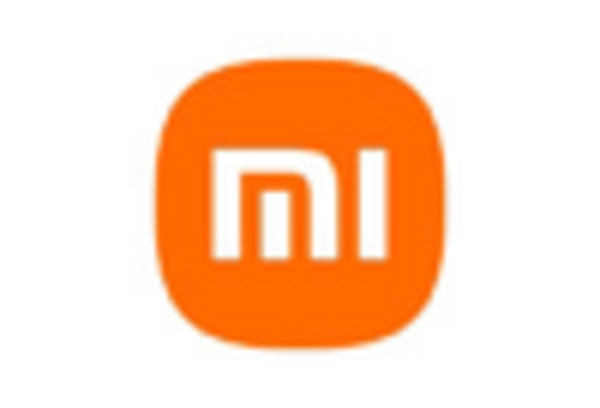Increasing Urbanization
The trend of increasing urbanization appears to be a significant driver for the Personal Air Purification Market. As more individuals migrate to urban areas, the demand for clean air solutions intensifies due to higher pollution levels. Urban environments often experience elevated concentrations of particulate matter and other pollutants, which can adversely affect health. According to recent data, urban areas are projected to house approximately 68% of the world's population by 2050. This demographic shift is likely to propel the demand for personal air purifiers, as consumers seek to mitigate the adverse effects of urban air quality. Consequently, the Personal Air Purification Market is expected to witness substantial growth as urban dwellers prioritize health and well-being.
Environmental Regulations
Stricter environmental regulations are influencing the Personal Air Purification Market by encouraging the adoption of cleaner air technologies. Governments are increasingly implementing policies aimed at reducing air pollution and promoting public health. These regulations often lead to heightened awareness among consumers regarding the importance of air quality. As a result, individuals are more inclined to invest in personal air purification solutions to comply with health standards and improve their living environments. Market data indicates that the air quality control market is expected to reach USD 10 billion by 2027, reflecting the growing emphasis on air quality management. This trend suggests that the Personal Air Purification Market will benefit from regulatory pressures that drive consumer demand for effective air purification solutions.
Technological Advancements
Technological advancements in air purification technologies are driving innovation within the Personal Air Purification Market. The introduction of advanced filtration systems, such as HEPA filters and activated carbon, enhances the efficiency of air purifiers in removing harmful pollutants. Moreover, the integration of smart technology, including IoT capabilities, allows users to monitor air quality in real-time and adjust settings accordingly. Market data indicates that the air purifier segment is expected to grow at a compound annual growth rate of 10.5% from 2025 to 2030. This growth is likely fueled by consumer demand for more effective and user-friendly air purification solutions, thereby reinforcing the importance of technological advancements in the Personal Air Purification Market.
Consumer Awareness and Education
Consumer awareness and education regarding air quality issues are pivotal drivers for the Personal Air Purification Market. As individuals become more informed about the health risks associated with poor air quality, they are increasingly seeking solutions to protect themselves and their families. Educational campaigns and information dissemination about the benefits of air purification are contributing to this trend. Data indicates that nearly 70% of consumers are willing to invest in air purifiers after learning about their health benefits. This heightened awareness is likely to stimulate growth in the Personal Air Purification Market, as consumers prioritize air quality in their purchasing decisions and seek products that enhance their overall well-being.
Rising Allergies and Respiratory Issues
The increasing prevalence of allergies and respiratory issues is a notable driver for the Personal Air Purification Market. With rising cases of asthma, hay fever, and other respiratory conditions, consumers are becoming more aware of the need for clean air. Data suggests that approximately 300 million people worldwide suffer from asthma, a figure that continues to rise. This growing health concern is prompting individuals to invest in personal air purifiers to alleviate symptoms and improve indoor air quality. As awareness of the link between air quality and health expands, the Personal Air Purification Market is likely to experience heightened demand, as consumers seek effective solutions to combat allergens and pollutants.


